‘FW de Klerk should be given considerable credit for the end of apartheid’
Your digest of analysis from the British and international press
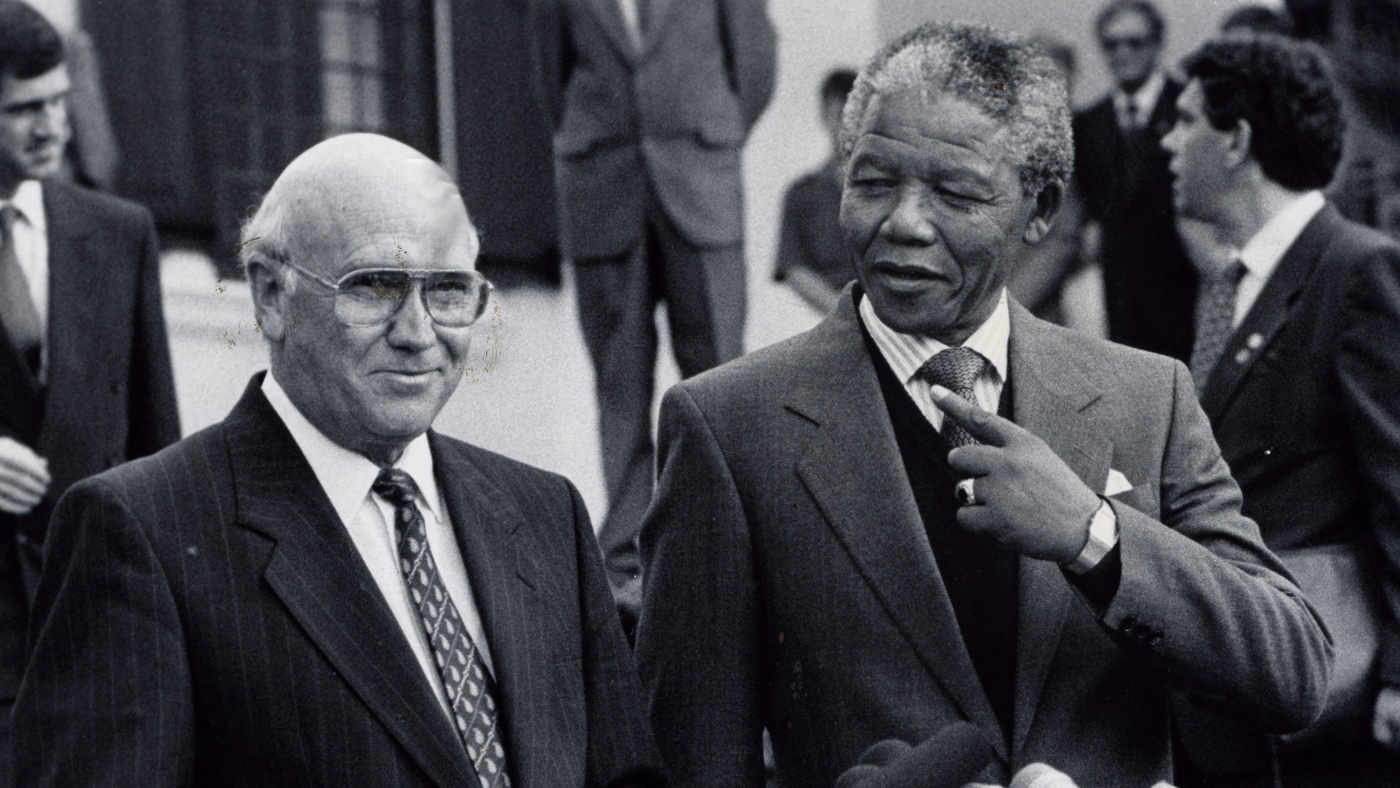
- 1. As the last apartheid president, FW de Klerk was South Africa’s Mikhail Gorbachev
- 2. Trying to put a price tag on trauma suffered by families separated at the border? Good luck
- 3. How Greta serves the elites
- 4. Would an independent Scotland be vulnerable? Not necessarily
- 5. Fear, panic and chaos: the joy of flying from the UK to New York again
A free daily email with the biggest news stories of the day – and the best features from TheWeek.com
You are now subscribed
Your newsletter sign-up was successful
1. As the last apartheid president, FW de Klerk was South Africa’s Mikhail Gorbachev
Peter Hain for the i news site
on an unlikely reformer
“FW de Klerk was to South Africa what Mikhail Gorbachev was to the Soviet Union,” writes Peter Hain for the i news site, describing the former president as a “midwife from tyranny to a new politics”. When de Klerk took on the presidency in 1989, “there had been no clues at all to the reforming zeal with which he proceeded” or the “tough, turbulent negotiations” that would take place between himself and Nelson Mandela. Why did de Klerk, who “pressed repeatedly” for white privilege to be entrenched in the constitution, “become the unlikely apostle for change”, asks Hain. In part, “because it had become clear to all but apartheid diehards that the game was up”. It is “remarkable that possibly the most privileged ruling elite in the world eventually surrendered its power”. De Klerk “should rightly be given considerable credit as apartheid apparatchik turned conduit for non-racial democracy”.
The Week
Escape your echo chamber. Get the facts behind the news, plus analysis from multiple perspectives.

Sign up for The Week's Free Newsletters
From our morning news briefing to a weekly Good News Newsletter, get the best of The Week delivered directly to your inbox.
From our morning news briefing to a weekly Good News Newsletter, get the best of The Week delivered directly to your inbox.
2. Trying to put a price tag on trauma suffered by families separated at the border? Good luck
The Washington Post’s editorial board
on compensating for cruelty
Donald Trump’s policy of separating families at the border “will enter the history books as among the more callously dehumanising acts executed by any administration on US soil”, says The Washington Post. It now remains to be seen what a jury will consider an appropriate settlement sum for a “migrant family whose baby or toddler or tween was taken away” by the government. Senator Tom Cotton has “denounced” a reported payout of up to $450,000 to individual claimants as “excessive”, says the paper. President Biden chimed in that “a payoff that size is ‘not going to happen’”. Paying individuals such a “jaw-dropping sum” would exceed previous payouts to other “grievously wronged groups”, and there’s “no doubt” Biden would like to avoid the risks of a costly payout. But the administration would also prefer not having to defend this “singularly toxic Trump administration policy in court”. Better to settle, says the Post, and acknowledge responsibility for having “inflicted such pain”.
A free daily email with the biggest news stories of the day – and the best features from TheWeek.com
3. How Greta serves the elites
Jennie Bristow for Unherd
on a shortsighted projection
World leaders are being urged to think of future generations at Cop26. All the talk isn’t really about our children’s children, says Jennie Bristow on UnHerd: “Rather, it is better understood as a highfalutin form of presentism; the projection of a state of emergency into the years ahead, to provide moral cover for political and economic decisions made by global elites.” This “project of ‘the future’ has some appeal”, particularly for younger generations “who have been socialised into the idea that democratic power counts for little” and instead believe that change comes from “those with the power to bring it about”, writes Bristow. “For elites, legitimacy is the thing that enables them to retain authority”, and that in turn comes from the past and present, not “the future”. For today’s conservatives, “the intergenerational contract can only be honoured by ripping up the past and legislating on behalf of the future”, she adds. While there may be “short-term gains”, “at some point, the wheels will come off”.
4. Would an independent Scotland be vulnerable? Not necessarily
Dorcha Lee for The Herald
on international security
Defence Secretary Ben Wallace’s assertion that an independent Scotland would be more vulnerable to terrorism is “an important consideration”, writes retired Irish army colonel Dorcha Lee for The Herald. If it were to become a member of both Nato and the EU, an independent Scotland “could reasonably expect to have access to shared intelligence” of international threats. Whether the presence of the Trident nuclear deterrent on Scottish territory would make the country more or less vulnerable is “debatable”. The writer is “on record for putting most of the blame on Russia” over growing tensions between Nato/EU and Moscow, but “it is not at all clear that the Russian threat would be a game-changer over Scottish independence”. Ultimately, it’s “up to Scots” to look at its security and defence policy; “it might be a bit much to expect London to offer its considerable expertise”, says Lee. “After all, turkeys don’t vote for Christmas!”
5. Fear, panic and chaos: the joy of flying from the UK to New York again
Emma Brockes in The Guardian
on transatlantic travel
On Monday, “a sort of lumbering civilian version of the Red Arrows” and its passengers prepared to take off from Heathrow – or at least “those of us who could figure out the pre-flight paperwork”, writes Emma Brockes for The Guardian. Not being able to travel to America for almost two years has been “an extraordinary breach in life as we knew it” for Britons and Europeans, and the announcement of a resumption last month “was the best news many of us had had in a long time”. Perhaps unsurprisingly, the scenes at the airport this week were “chaotic”, with Brits “clutching fistfuls of printouts, in search of someone to take them”, says Brockes. They “‘should’ve downloaded the app’, I thought smugly.” Except the app crashed, and crashed again. “Like something from a seance, passengers could sense one another invisibly swearing under their breath.” Hope waned as hours were spent navigating the necessary systems. “There it was, pre-Covid life, fully up and running and ready to receive us.”
-
 The 8 best TV shows of the 1960s
The 8 best TV shows of the 1960sThe standout shows of this decade take viewers from outer space to the Wild West
-
 Microdramas are booming
Microdramas are boomingUnder the radar Scroll to watch a whole movie
-
 The Olympic timekeepers keeping the Games on track
The Olympic timekeepers keeping the Games on trackUnder the Radar Swiss watchmaking giant Omega has been at the finish line of every Olympic Games for nearly 100 years
-
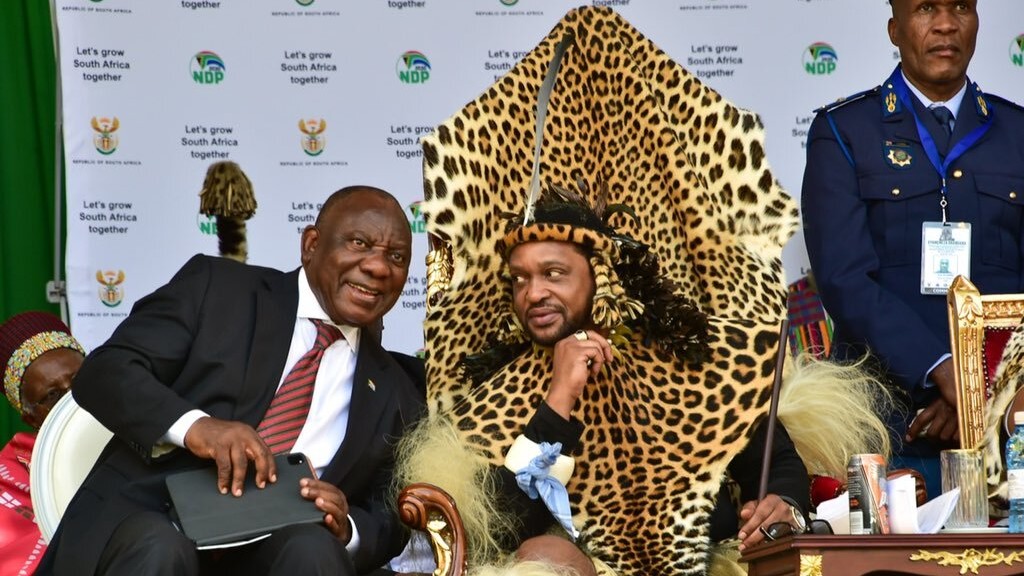 Potential poisoning and succession posturing for South Africa’s Zulu king
Potential poisoning and succession posturing for South Africa’s Zulu kingfeature Conflicting reports over king’s health highlight ongoing bitter power struggles
-
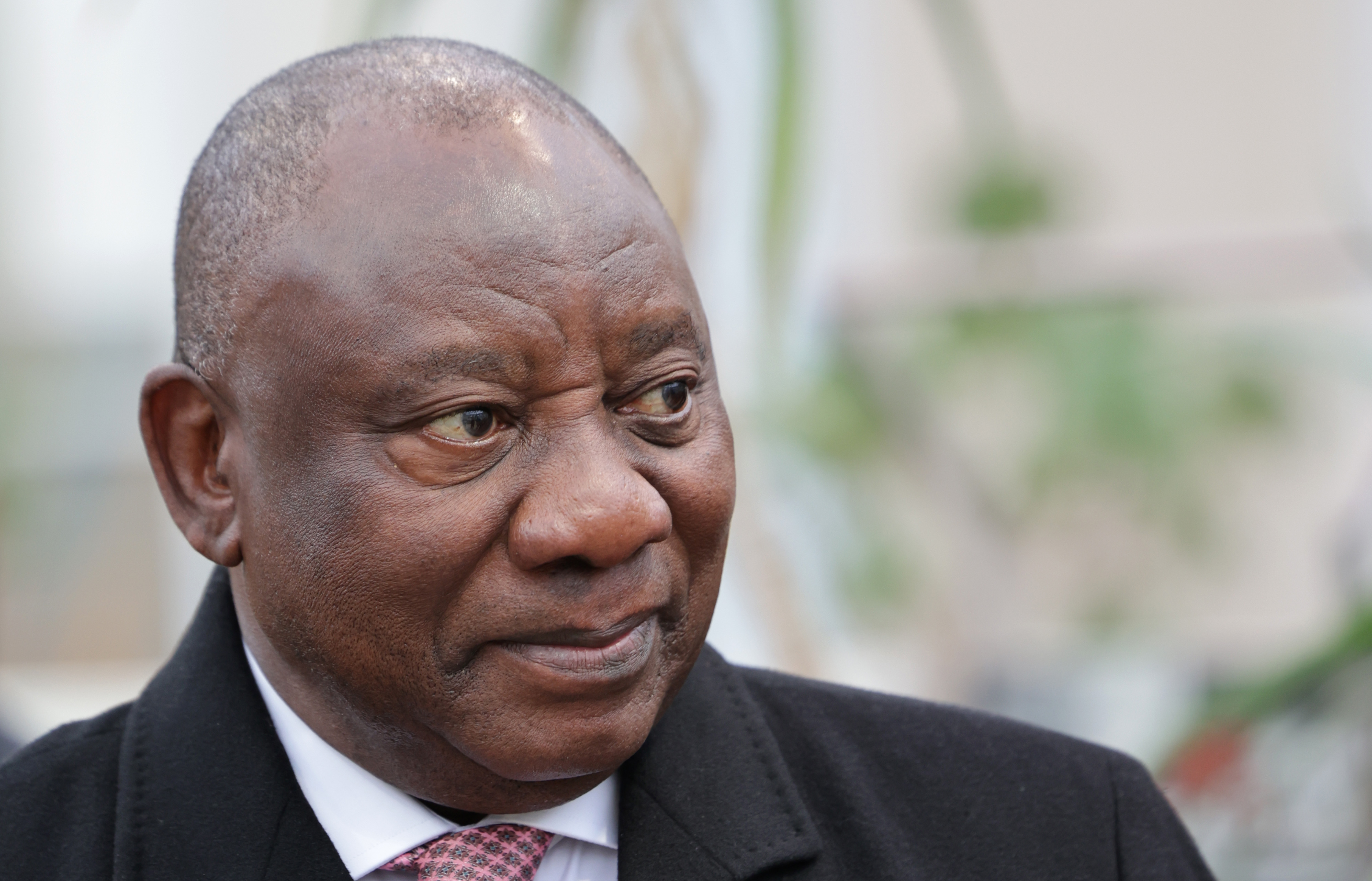 Embattled South African president will not resign, says it is up to political party to decide fate
Embattled South African president will not resign, says it is up to political party to decide fateSpeed Read
-
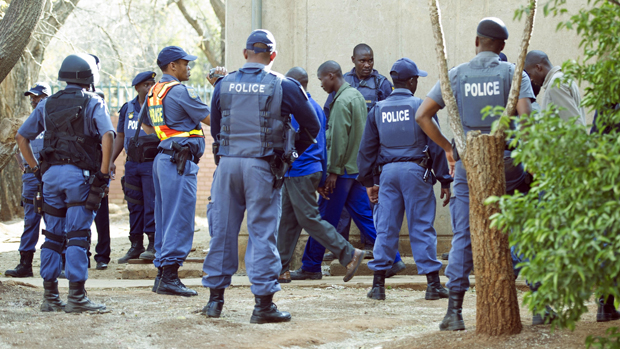 The Week Unwrapped: Africa alert, ticket touts and the words of the year
The Week Unwrapped: Africa alert, ticket touts and the words of the yearpodcast Is South Africa at risk of terrorist attacks? Why are ticket touts in such high demand? And are we really in a ‘permacrisis’?
-
 ‘The UK’s malaise will not end with the Prime Minister’s exit’
‘The UK’s malaise will not end with the Prime Minister’s exit’Instant Opinion Your digest of analysis from the British and international press
-
 ‘Police tactics are not getting worse, they are simply being filmed’
‘Police tactics are not getting worse, they are simply being filmed’Instant Opinion Your digest of analysis from the British and international press
-
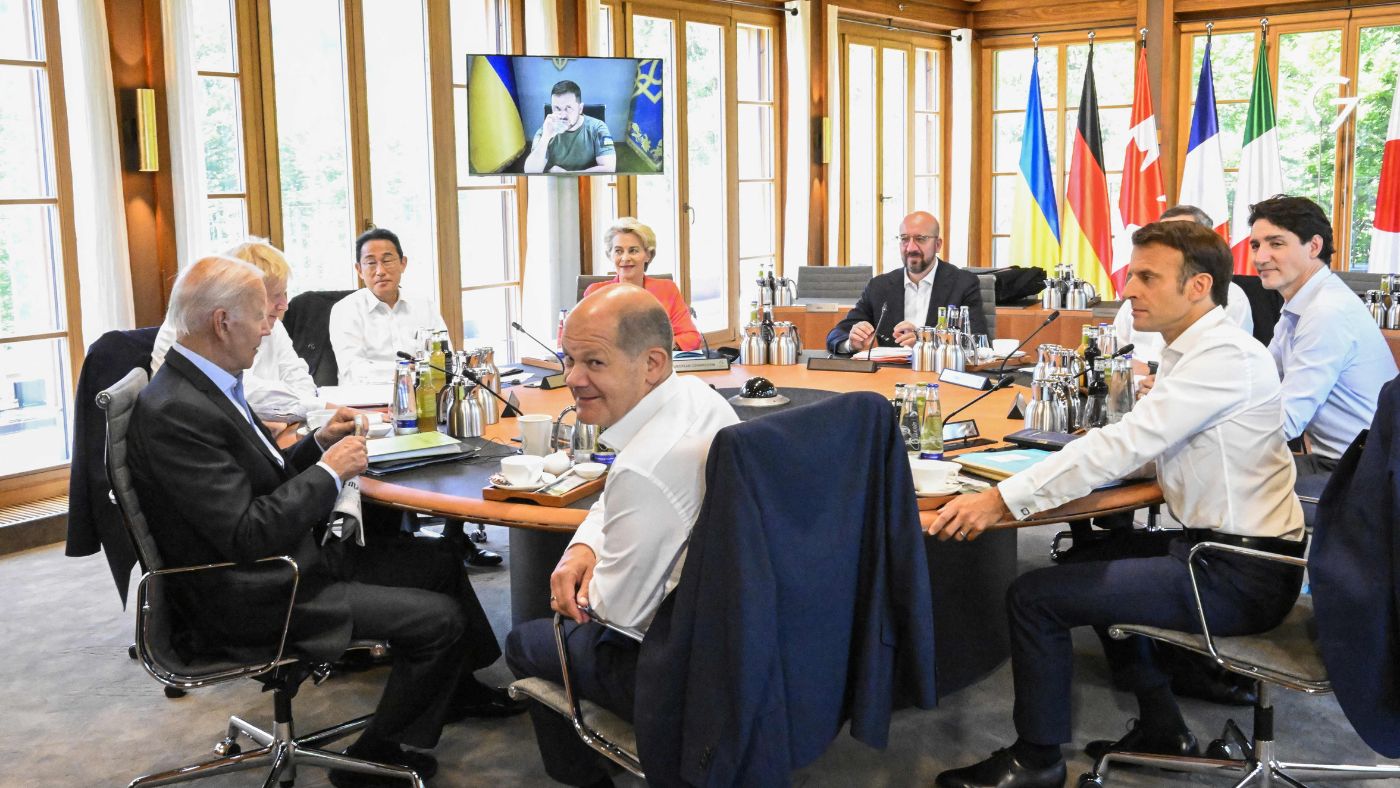 ‘G7 leaders missed a golden opportunity’
‘G7 leaders missed a golden opportunity’Instant Opinion Your digest of analysis from the British and international press
-
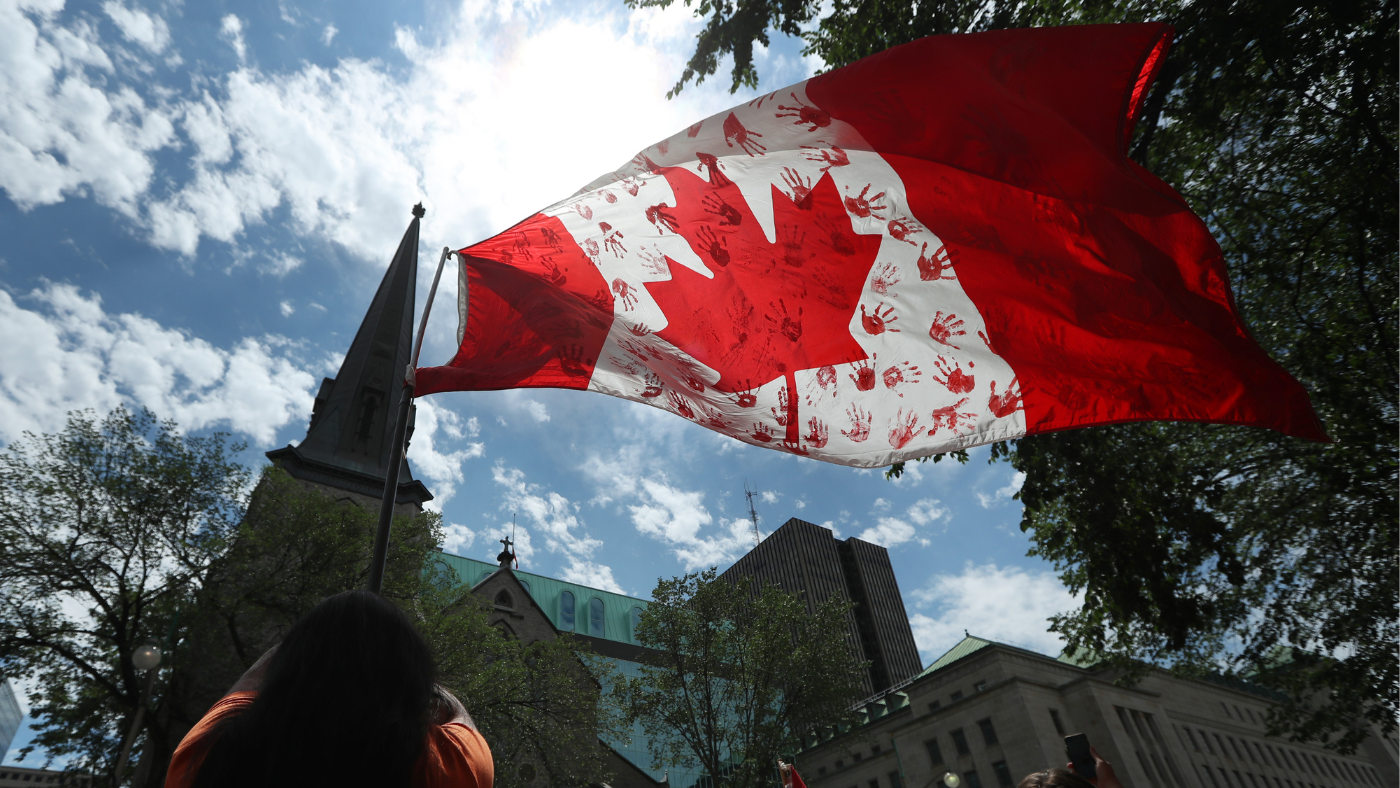 ‘It takes some soul searching to celebrate Canada Day’
‘It takes some soul searching to celebrate Canada Day’Instant Opinion Your digest of analysis from the British and international press
-
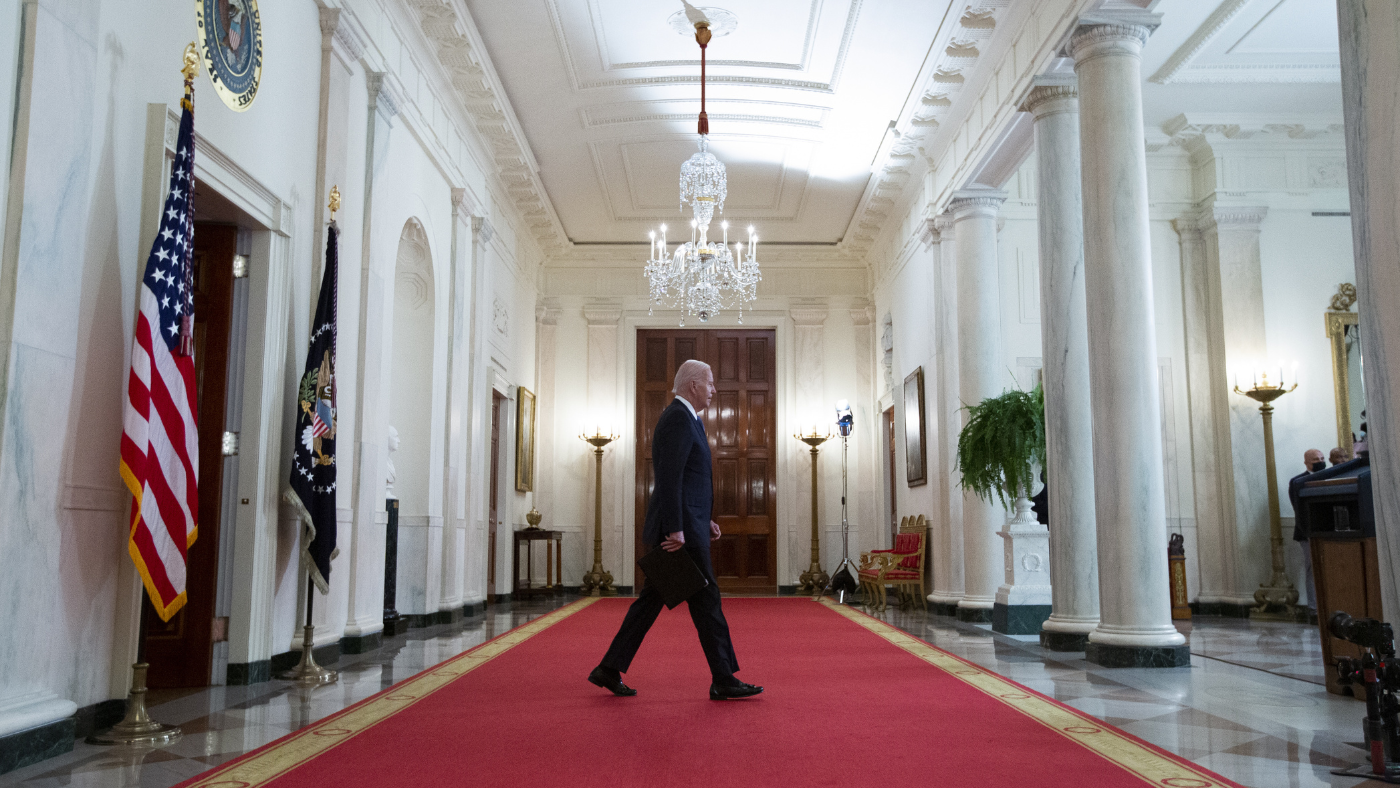 ‘Breakthrough on abortion rights could be there if Biden reaches for it’
‘Breakthrough on abortion rights could be there if Biden reaches for it’Instant Opinion Your digest of analysis from the British and international press